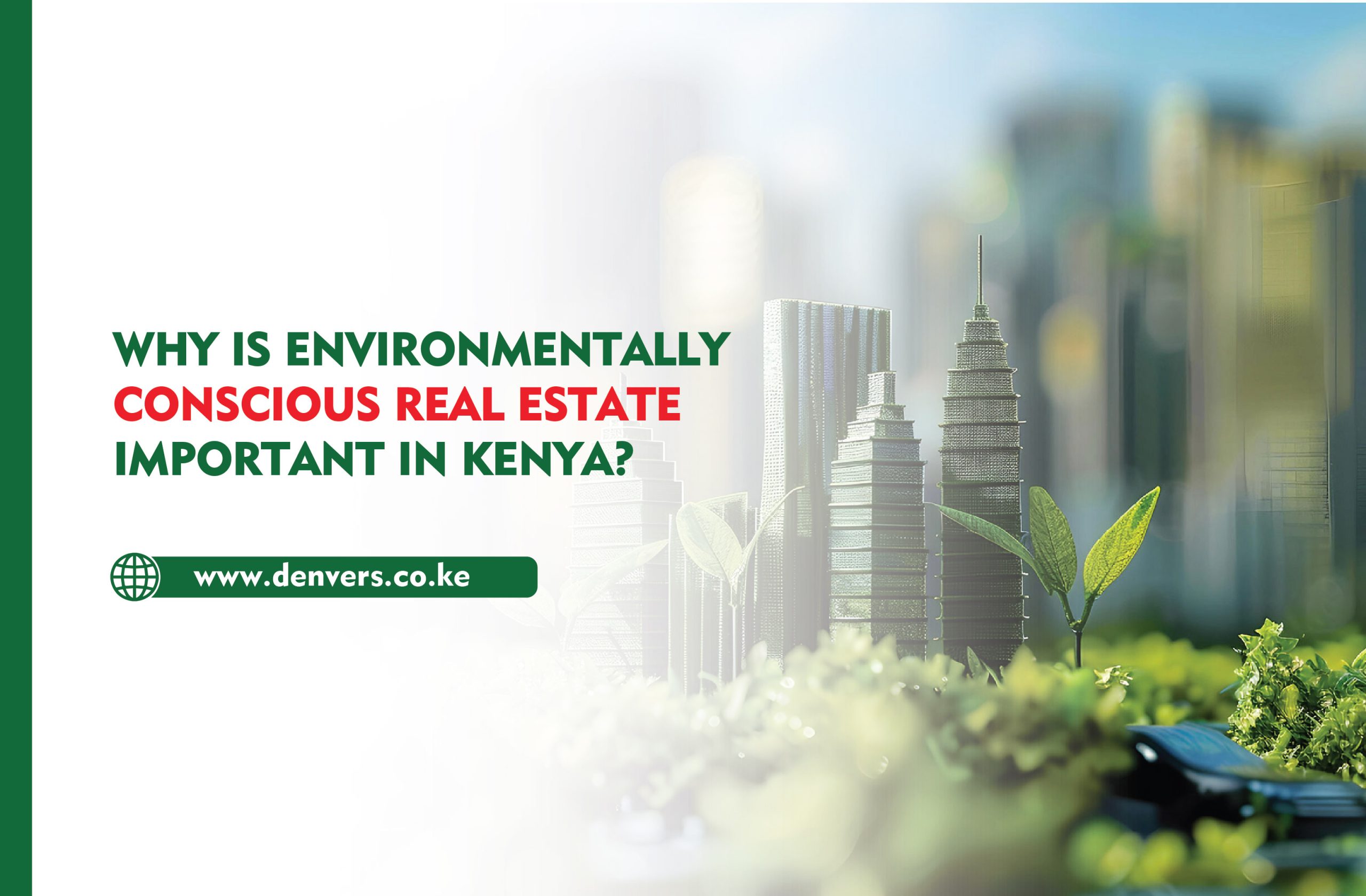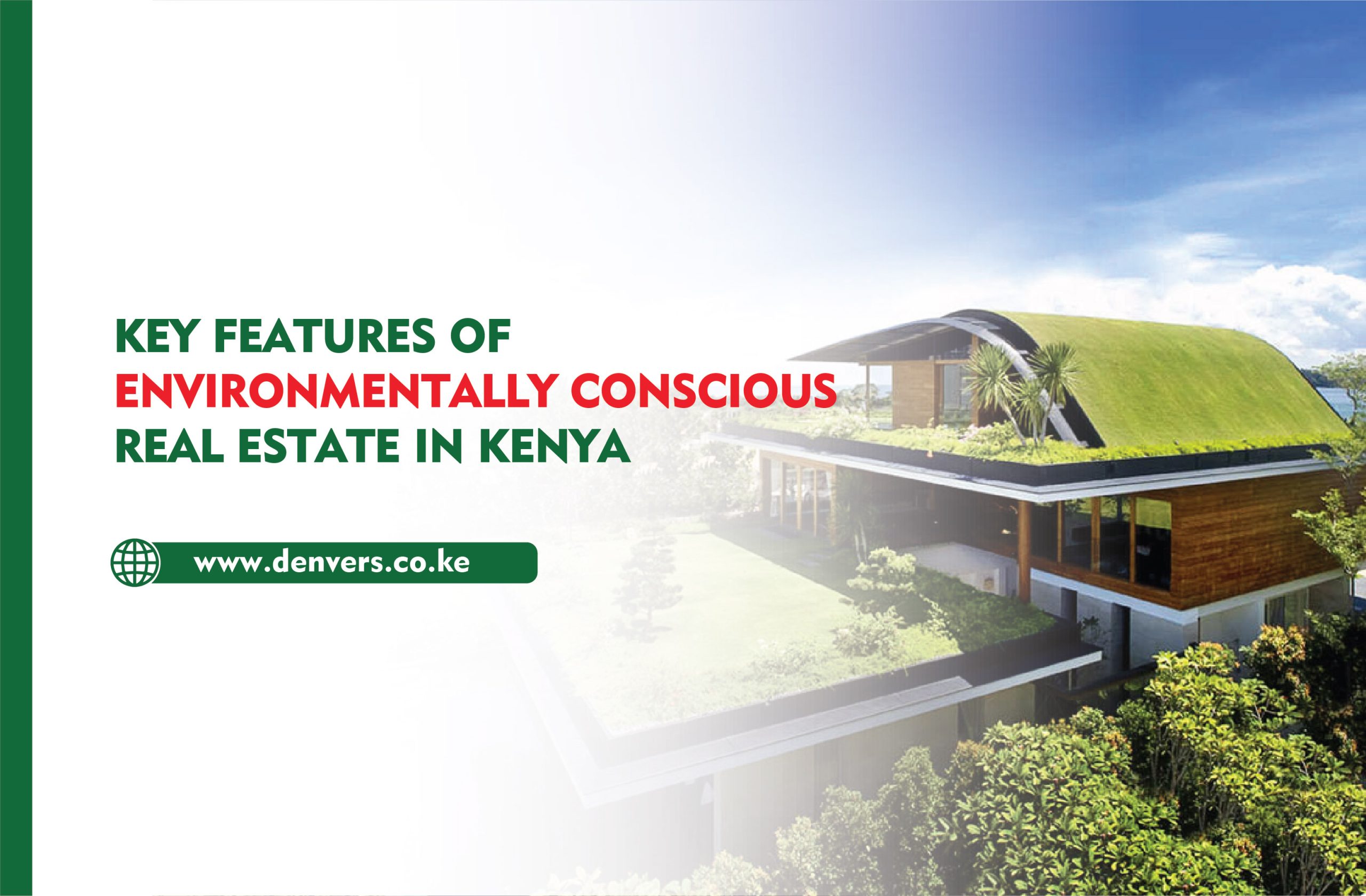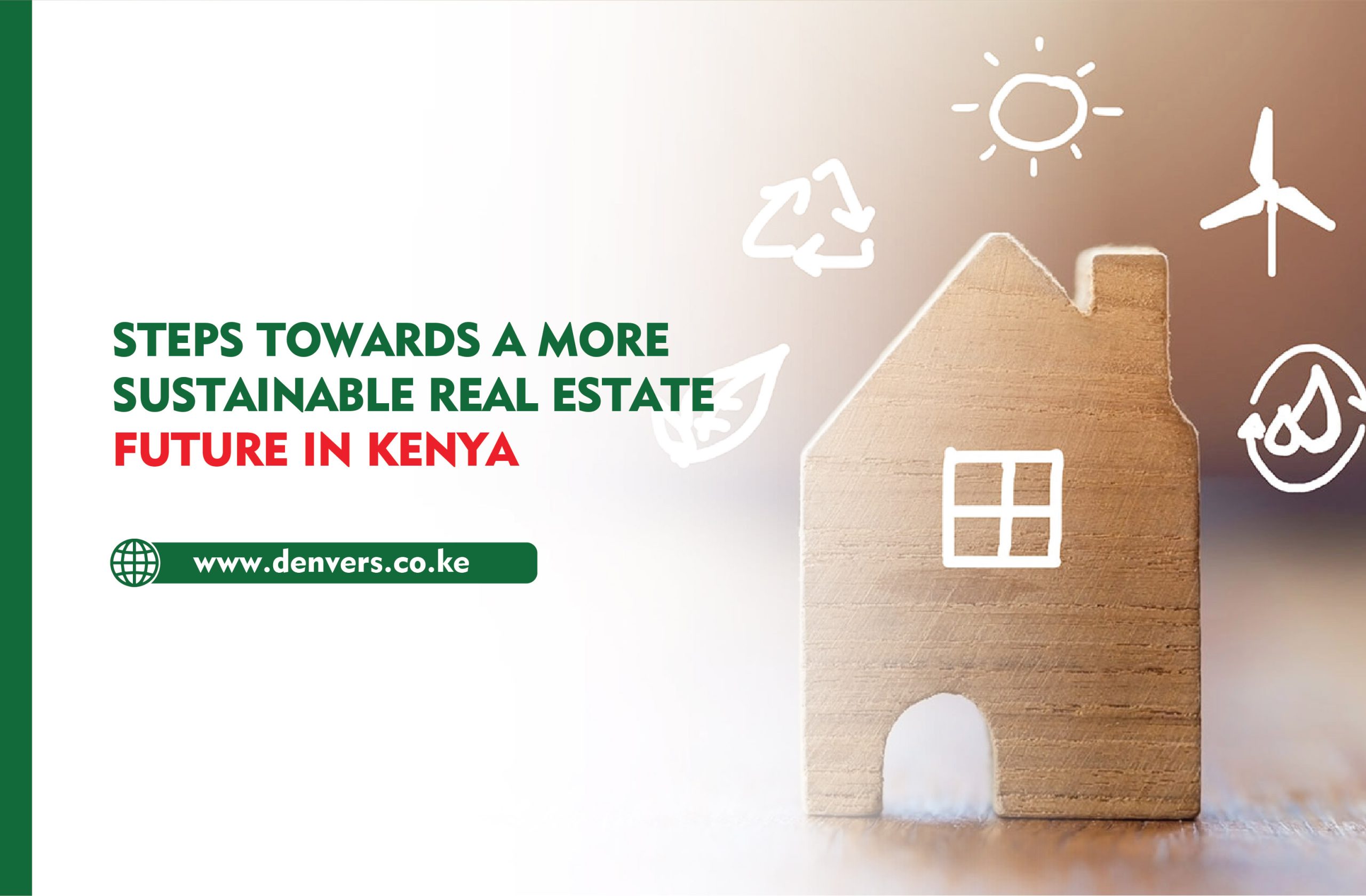Kenya, a country known for its diverse landscapes and rich wildlife, is also experiencing rapid urbanization. As the demand for housing and commercial spaces grows, the real estate industry in Kenya has a crucial role to play in ensuring sustainable development. This blog post explores the concept of environmentally conscious real estate in Kenya, its benefits, challenges, and the steps being taken to promote sustainable practices in the sector.
What is Environmentally Conscious Real Estate?
Environmentally conscious real estate, also known as green real estate or sustainable real estate, refers to the development and management of properties that minimize their negative impact on the environment. It encompasses a wide range of practices, including energy efficiency, water conservation, sustainable materials sourcing, waste reduction, and pollution prevention.
Why is Environmentally Conscious Real Estate Important in Kenya?

The importance of environmentally conscious real estate in Kenya cannot be overstated. Here are some key reasons why it matters:
- Climate Change Mitigation: The real estate sector is a significant contributor to greenhouse gas emissions. By adopting sustainable practices, the industry can play a crucial role in mitigating climate change and protecting the environment.
- Resource Conservation: Kenya faces water scarcity and other resource challenges. Environmentally conscious real estate promotes efficient use of resources, ensuring their availability for future generations.
- Improved Health and Well-being: Sustainable buildings often prioritize indoor air quality, natural light, and green spaces, which can positively impact the health and well-being of occupants.
- Economic Benefits: Green buildings can attract environmentally conscious tenants and buyers, leading to increased property values and rental income.
- Community Development: Sustainable real estate projects can contribute to community development by creating green spaces, promoting sustainable transportation options, and fostering a sense of environmental responsibility.
Key Features of Environmentally Conscious Real Estate in Kenya

Several key features characterize environmentally conscious real estate in Kenya:
- Energy Efficiency: Sustainable buildings incorporate energy-efficient technologies and design strategies to reduce energy consumption. This includes using solar panels, efficient lighting systems, and insulation.
- Water Conservation: Water-saving measures such as rainwater harvesting, efficient plumbing fixtures, and landscaping with drought-tolerant plants are essential in water-scarce regions like Kenya.
- Sustainable Materials: Using locally sourced, renewable, and recycled materials minimizes the environmental impact of construction and reduces waste.
- Waste Reduction and Recycling: Implementing waste reduction strategies, recycling programs, and composting systems helps divert waste from landfills.
- Green Building Certifications: Obtaining certifications like LEED (Leadership in Energy and Environmental Design) or Green Star can validate a building’s environmental performance and attract tenants and buyers.
Challenges and Opportunities in Environmentally Conscious Real Estate in Kenya
While there is growing interest in environmentally conscious real estate in Kenya, several challenges hinder its widespread adoption:
- High Initial Costs: Implementing sustainable practices can involve higher upfront costs compared to traditional construction methods.
- Lack of Awareness and Education: Many stakeholders in the real estate industry may lack awareness of sustainable practices and their benefits.
- Limited Access to Financing: Financing options specifically designed for green projects may be limited.
- Regulatory Framework: A robust regulatory framework to promote and incentivize sustainable building practices is needed.
Despite these challenges, there are significant opportunities for environmentally conscious real estate in Kenya:
- Growing Demand: Increasing awareness of environmental issues and the demand for sustainable living spaces present a growing market for green buildings.
- Government Support: The Kenyan government has recognized the importance of sustainable development and has implemented policies and incentives to promote green building practices.
- Innovation and Technology: Advancements in technology offer innovative solutions for energy efficiency, water conservation, and waste reduction.
- Collaboration and Partnerships: Collaboration between government, industry, and academia can facilitate knowledge sharing, research, and the development of best practices.
Steps Towards a More Sustainable Real Estate Future in Kenya

To promote environmentally conscious real estate in Kenya, several steps can be taken:
- Education and Awareness: Raising awareness among stakeholders, including developers, architects, engineers, and policymakers, about the benefits of sustainable practices.
- Policy and Regulatory Framework: Developing and implementing supportive policies and regulations to incentivize green building and discourage unsustainable practices.
- Financing Mechanisms: Establishing financial mechanisms, such as green bonds and tax incentives, to facilitate investment in sustainable projects.
- Research and Innovation: Encouraging research and development in sustainable building technologies and materials.
- Collaboration and Partnerships: Fostering collaboration between government, industry, academia, and civil society organizations to share knowledge and promote best practices.
- Consumer Education: Educating consumers about the benefits of choosing sustainable homes and workplaces.
Conclusion
Environmentally conscious real estate is not just a trend but a necessity in today’s world. By embracing sustainable practices, the real estate industry in Kenya can contribute to a more sustainable future, mitigate climate change, conserve resources, and improve the quality of life for its citizens. Let us work together to build a greener and more sustainable Kenya
